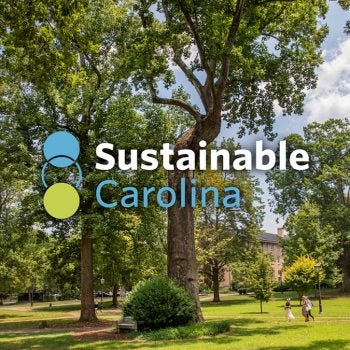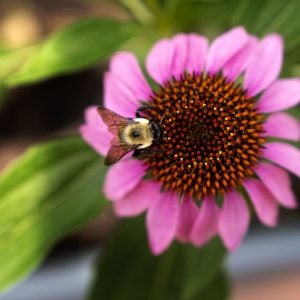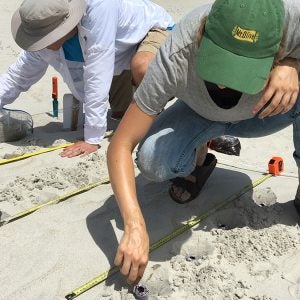Adverse
Adverse: !TEST! !TEST! 2025-04-08 08:50:20
Carolina is making strides toward becoming a more sustainable university.
Our commitment to excellence in sustainability and environmental work is led by Sustainable Carolina. The Carolina Sustainability Council guides this initiative and turns ideas into action by connecting with campus stakeholders.
Sustainable Carolina works to advance and amplify all sustainability activities with an emphasis on connecting research, education and public service to support near-term sustainability targets.

A project at the UNC Institute for Marine Sciences is serving as a carbon offset for Carolina by burying carbon deposits into the sediment of a saltmarsh created by researchers.
Carolina has a robust on-campus composting program in its dining halls, but for students who live off-campus, the options get expensive. That challenge led to a group of Tar Heels founding CompostMates. The student organization is dedicated to expanding access to composting for students living off-campus through a free, curbside food scrap collection service.
A new fully-electric Chapel Hill Transit bus and a rooftop full of solar panels are just two ways Carolina students are working to make our campus more sustainable.
Our dedication to the environment is driven by Tar Heels with a passion for helping others and the planet. Students, faculty and staff are making direct steps toward meeting environmental challenges by conducting research, launching programs and leading change to protect habitats across our state.
Click on a story below to learn more about a project
When it comes to connecting with nature, there's no better spot than the North Carolina Botanical Garden and its more than 1,100 acres of garden and conservation areas. Year-round native plant gardening makes for a unique and beautiful landscape, from the tiny ephemerals that pop up in early spring to the stunning, architectural seed heads of fall.
But they're doing more than just pruning and educating plant lovers. They're also conducting research on the ecology and restoration of rare plants, as well as curating a seed bank for the protection of genetic material for some of the rarest plants in the Southeastern United States.

Restoring the Rare Flora of Penny’s BendFor over 40 years, the North Carolina Botanical Garden has managed Penny’s Bend Nature Preserve in Durham with a directive to protect rare plants and wildlife habitats; preserve the site’s availability for non-intrusive recreation; and provide an accessible example of in situ conservation in an urbanizing environment.

Researcher restores rare plants on the coastMike Kunz, a conservation ecologist with the North Carolina Botanical Garden, hits the beaches to preserve endangered plants like the seabeach amaranth. As part of a five-year project, Kunz has spent long hours crawling across the sand to give the rare plant a fighting chance on the North Carolina coast.
The Gardening and Ethnobotany in Academia Project is a student organization that maintains the Sam W. Hitt Medicinal Garden on campus and encourages students and faculty to explore the relationship between plants and people — medicinally, economically and culturally at a local and global scale.
A new seed library in Kenan Science Library's makerspace has everything Tar Heels need to explore gardening or botany. In addition to envelopes of seeds, the library includes information on growing the plants and an online resource guide with frequently asked questions and further reading related to the seed library.
Through the Carolina Beekeeping Club, Tar Heels are learning to care for hives and exploring the impact bees have on our environment and food systems.
While fruits, vegetables and herbs are plentiful in Edible Campus Carolina's multiple on-campus gardens, the organization does more than just grow vegetables. Through education and community outreach, the group is striving to reconnect people with their food.